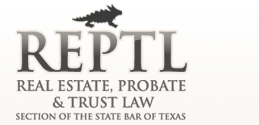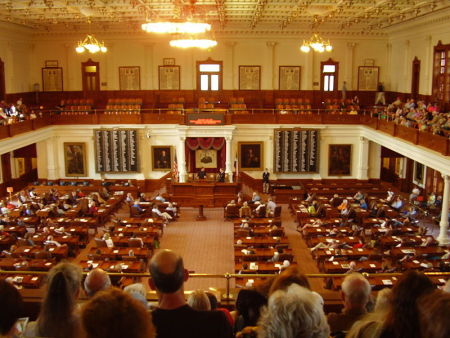 Caption: Relating to guardianships and alternatives to guardianship for persons who have physical disabilities or who are incapacitated.
Caption: Relating to guardianships and alternatives to guardianship for persons who have physical disabilities or who are incapacitated.
Author: Hartnett
Bill History
Bill Text
Relevance: This bill is supported by the Real Estate, Probate and Trust Law Section of the State Bar of Texas. It makes multiple changes to the guardianship statutes in the Texas Probate Code. These include:
- Changing the guardianship jurisdiction statutes in a way that is consistent to 2009's changes to the decedents' estates jurisdiction statutes. This is related to the enactment of the new Estates Code. (Sections 601, 605, 606A, 607A, 607B, 607C, 607D, 607E, and other technical changes)
- Clarifies that an attorney ad litem appointed in a temporary guardianship continues to serve until a permanent guardian is appointed or the guardianship application is denied. (Section 646)
- Eliminates the 5% of income and 5% of disbursement method of determining guardianship compensation in favor of a "reasonable compensation" standard. (Section 665)
- Makes it easier for the conservator of an adult disabled child to obtain a guardianship of that child. (Section 682A)
- Fixes some technical problems caused by 2009 changes to the physician's certificate requirements for guardianships. (Section 687)
- Eliminates the need to list other co-owners of property on guardianship inventories. (Sections 729 and 730)
- Clarifies that a guardianship of the estate shall be settled when all of the guardianship assets are transferred to a pooled trust subaccount. (Section 745)
- In the settlement of a guardianship estate, the attorney ad litem's fees may be taxed as costs instead of automatically coming from the ward's estate. (Section 745)
- Changes the maximum age for a guardian of a person to "voluntarily" admit the ward to an inpatient psychiatric facility from 16 to 18. (Section 770)
- Makes it possible to apply to the court for permission to transfer a portion of the ward's estate "as necessary to qualify the ward for government benefits." (Section 865)
- Permits a person with a physical disability only to apply for creation of a guardianship management trust (which may be necessary to qualify for governmental benefits). (Sections 867, 868, 868C, 869 and 870) The court cannot require the trustee of a trust created for a person with a physical disability only to file annual or final accountings. (Sections 871 and 873)
- Requires the trustee of a guardianship management trust to file an "initial accounting" (the equivalent of an inventory) within 30 days after the date a trustee receives property. (Section 870A
- Clarifies who can apply for the establishment of a pooled trust subaccount and who is eligible for a pooled trust subaccount. (Sections 910 and 911)
See "REPTL bills would make changes to trusts, guardianships and powers of attorney" on texasprobate.com.


 6 References
6 References
